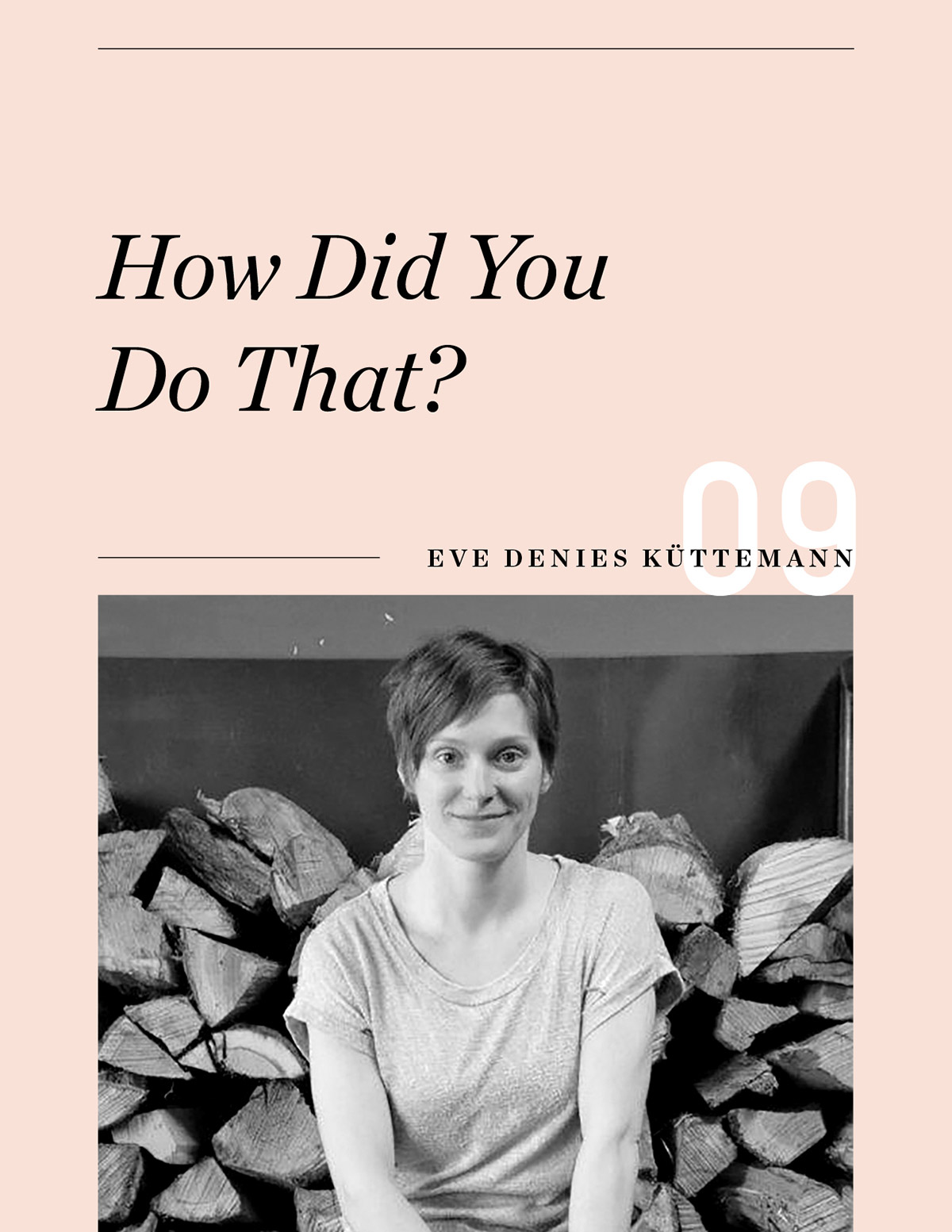
Whenever I meet someone who’s got a really cool job, who runs a thriving business, or who has completed an amazing project, I always want to know: “How did you do that?”
I’m always curious to hear the “behind-the-scenes story”—who they emailed, what they said, how they got their first client, how they got their foot in the door—the exact steps that they took to achieve their goal.
HOW DID YOU DO THAT? is an interview series where we get to hear the REAL story behind someone’s success—not the polished, neat and tidy version.
To see a complete list of all the interviews that have been completed to date, head over here.
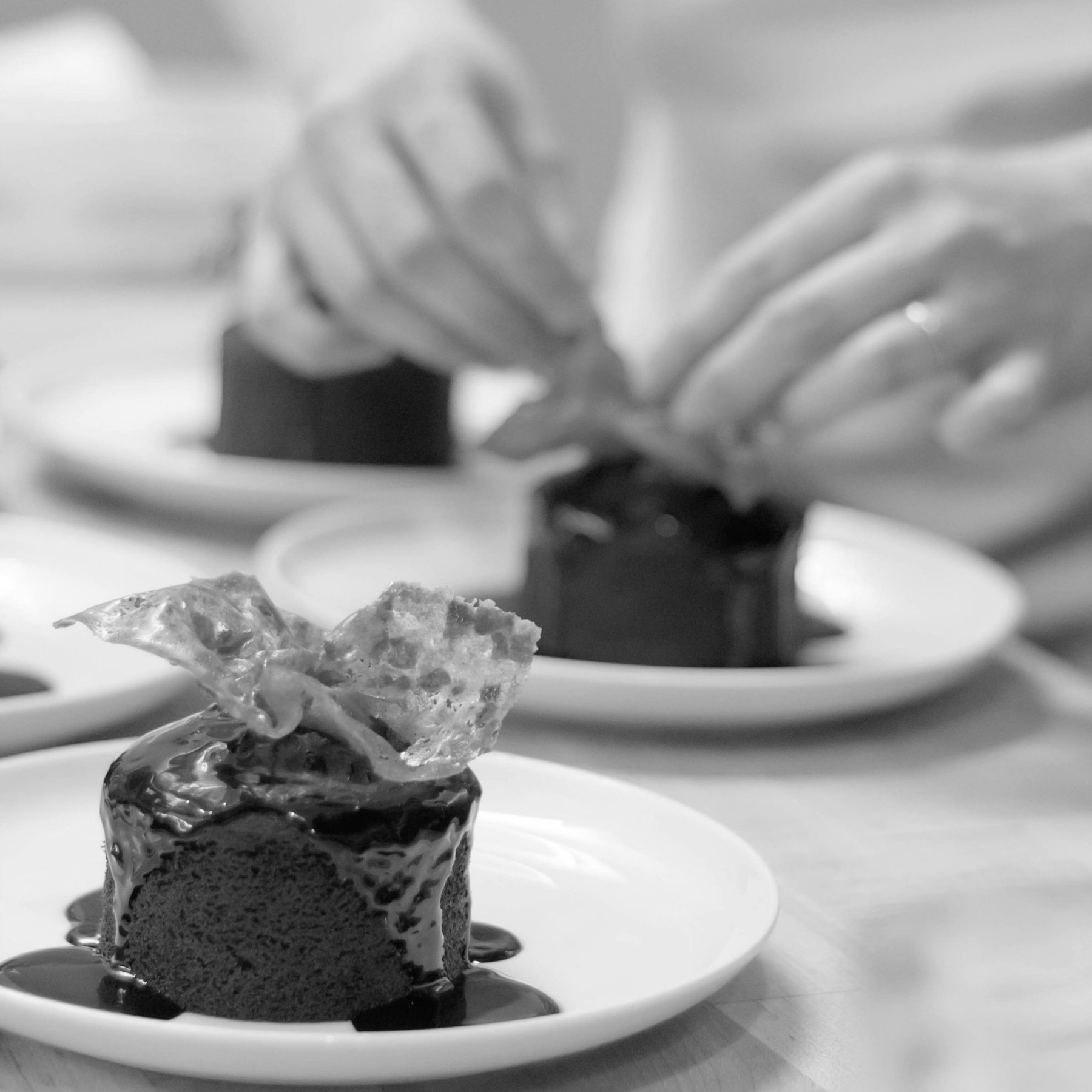
Name: Eve DeNies Küttemann
Location: Portland, Oregon
Profession: Chef
You’ve worked at some of the best restaurants in the entire world, including L’Atelier de Joël Robuchon in Paris. Then you moved back to the United States, settled in Portland, and these days, you run a business called Sage Hen. How did you get started as a chef?
I started my career working in small restaurants in Portland and Ohio before heading to France. I started out working on the savory side of the kitchen, but after about eight years in the business, I took my first position doing desserts. It was actually a pretty practical decision. I had met my husband, who’s also a cook, and we decided we should diversify our skills (in reality, it’s possible we just didn’t want to compete with each other!) and I was the one least averse to pastry. Nine years later, I have never regretted that choice.
With Sage Hen, you take classic American dessert recipes that are 100+ years old, and you throw fabulous parties where you serve all kinds of desserts paired with fun historical facts. What inspired you to start Sage Hen?
The impulse to focus on old American recipes was a product of four things that all led me to feel like American cuisine had centuries of context that I had yet to discover.
First, the sense of historical gravity that I absorbed from French culinary culture; Second, what I perceived as the soullessness that can sometimes infect modernism in American cuisine. Third, the realization that Escoffier’s Le Guide Culinaire, the book that defined what is now known as classic French cuisine, was first published a full decade AFTER a similar encyclopedia was published in the United States (by Charles Ranhofer of Delmonico’s Restaurant). And fourth, an incredible cookbook that a friend lent me that was written in 1903 by Marion Harland. It was a real gem, a family heirloom my friend received from her grandmother, full of hand-written notes.
It’s a topic that has proven to be endlessly and incredibly enriching, as a cook, host, eater, and member of my community.
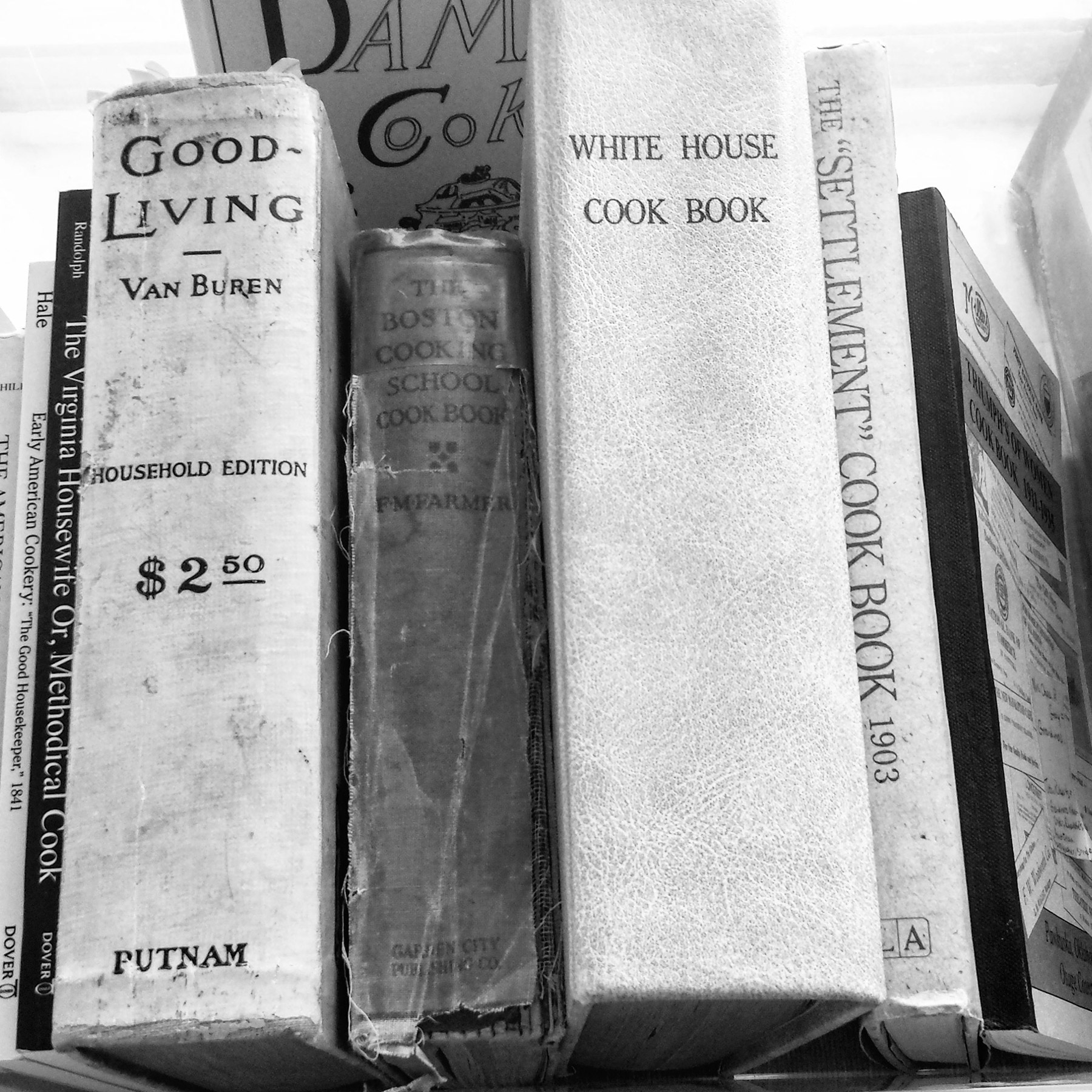
Starting a new business—or any kind of creative project—can feel really overwhelming. There are so many logistics to consider—buying supplies, getting city permits, finding the right location, and of course, finding customers! How have things been going for you so far?
It is! There are so many obstacles, both logistical and emotional. The first few events I did in the bakery space at Trifecta were a cliff jump from pure euphoric idealism to bone crushing defeat.
I learned really quickly that coming up with a fun idea and planning it out is the easy part—but a project will only be completely successful through lots of practice, trial and error, and experience. In the end, I’ve come to rely on a hefty dose of patience to pick me back up again. I really love running Sage Hen, so giving up has never been an option.
What’s been the most overwhelming thing you’ve had to deal with in the past year or so? What happened, how did you feel, and how did you get through it?
The best example I have is a classic failed-cake story—every pastry chef has one! It was the second or third Sage Hen event, and there were several VIPs that night: media, bloggers, cameras…
That night, the “main event” was a Philadelphia White Mountain Cake, a simple layer cake that was highly prized in the late 1800s for its ethereal fluffiness—something hard to come by at a time when eggs had to be whisked for an hour by hand. I had given it a modern touch by shrouding the cake just before the event in big, undulating shards of crispy meringue. I put a box over it to hide it for the big reveal in front of the customers an hour later.
The event was going very well. Everyone was enjoying themselves despite the chaos of pictures being taken from every angle and a continual stream of questions from the reporters. The time came to present the cake. I made a few remarks about the history of the cake, lifted the box, and… all the meringues had softened into limp, wrinkly squares scantily covering the cake. It looked like someone had tossed a bunch of wet rags all over it. Cameras snapping, my heart sank. The diners—and reporters—scarfed it up and described it as a classed-up Twinkie, but needless to say, when I made the cake again the next day, the meringue shards went on at the last minute!
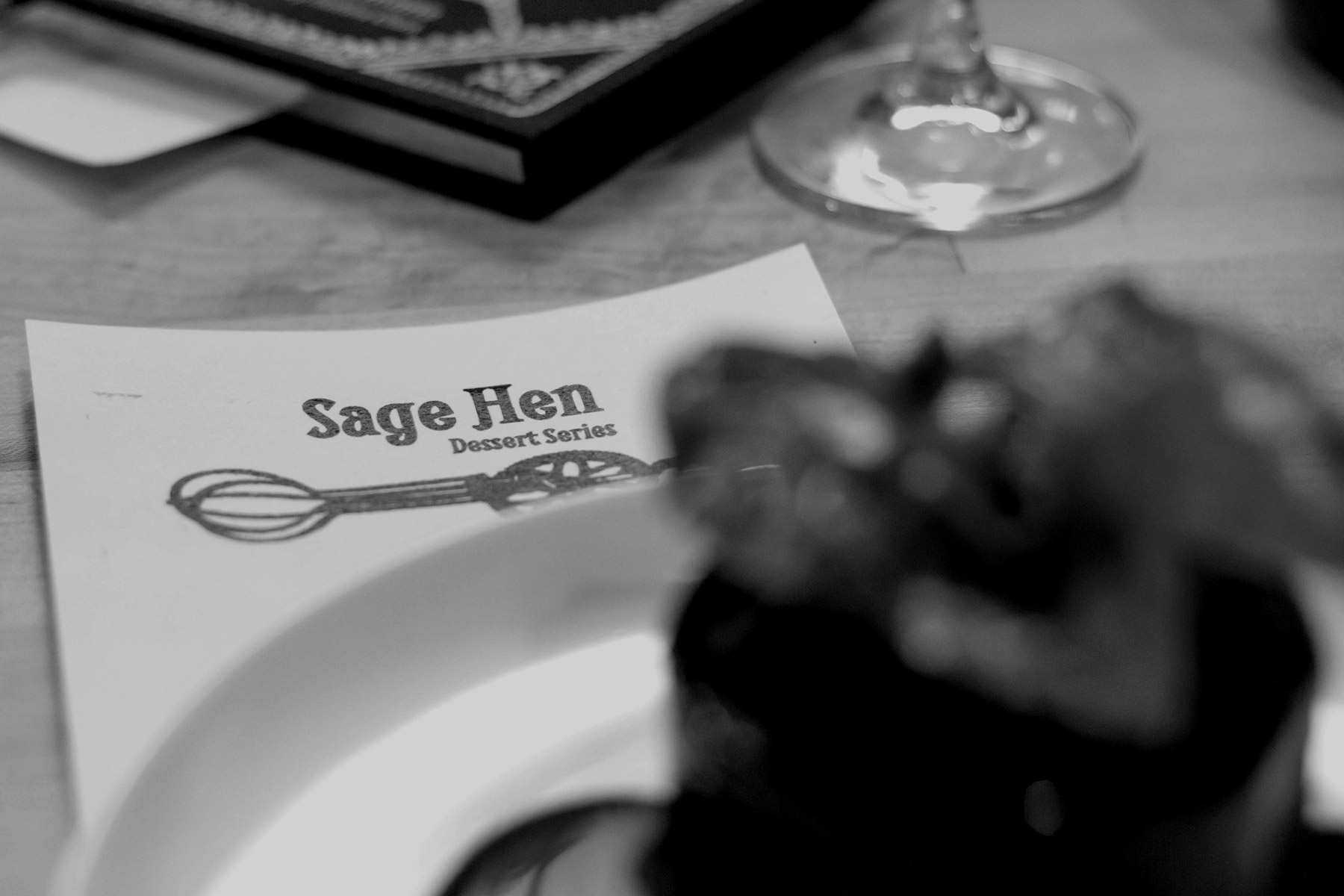
Think back to the very first Sage Hen dessert party. Were you nervous that nobody would show up? Did anything go terribly wrong? What did you learn from doing that very first event?
I’m so glad I did a trial run, because that was a real eye-opener. The first Sage Hen event was all coworkers and family, but with varying degrees of sobriety, interest in the project, and animosity towards others in the room…
It was a very intimate space. Just eight guests all seated right at my workspace, so “hostess skills” were the first thing I learned! I was trying to take drink orders, pour champagne, hang coats, get people seated, plate dishes, serve them, clear them, answer questions, all while telling the stories behind the dishes and not losing my train of thought. I was never much of a “performer,” but all of a sudden I felt like I was onstage with blinding lights shining in my face. I was nervous, for sure. I faked total confidence the whole time. To my surprise, by the end of the event even the most reluctant attendees told me they had fun. I still have no idea how that happened!
In addition to being a super-talented chef, you’re also very politically active. You did a fundraiser last year where you sold Thanksgiving pies to raise money for Planned Parenthood. Was that a spur-of-the-moment idea? How did it go? How did people in your community respond?
I do think about the world a lot, but I’m generally reluctant to blast my opinions publicly, especially from a business platform, which some people see—understandably—as inappropriate.
The Thanksgiving fundraiser was an idea that emerged in a conversation with some industry friends over drinks the day after the election. So it was certainly impulsive in its inception, but over the following few days I realized that I have never been in a financial position to make big donations and by using the platform I had created with Sage Hen, all of a sudden, I could.
Plus, Sage Hen was still a very small project—very personal, and flexible enough that I felt I could experiment. The reception in the Portland community was hugely positive. I had no backlash, only people who felt (as I did) the overwhelming desire to do SOMETHING, anything, to voice our values. Plus, I mean, we’re talking about pies on Thanksgiving! A lot of people just liked the idea of serving Shoofly Pie to their family! Between the smell of butter and molasses, the holiday atmosphere, and the enthusiasm coming from the customers, that day was euphoric.
In addition to running Sage Hen, you also work at a restaurant called Nomad.PDX. Is it challenging to balance your “day job,” so to speak, with your business? How do you create time to do both things? How do you avoid getting burnt out?
It’s taken me awhile to find a balance between earning a living and building Sage Hen, but for me anyway, it’s those early morning hours that are key!
Baking bread at Nomad allows me to start the day with my hands full of flour, which I find deeply satisfying and grounding. Doing something I love is motivation enough for me to spend the rest of the day on all the variables involved in running Sage Hen. Then, equally important, I make sure that when the day is over, I don’t take my work home with me—compartmentalization of my life has saved me from burnout many times. I’m not expert at this system yet, but the better I get at it, the better I do in each of my roles.
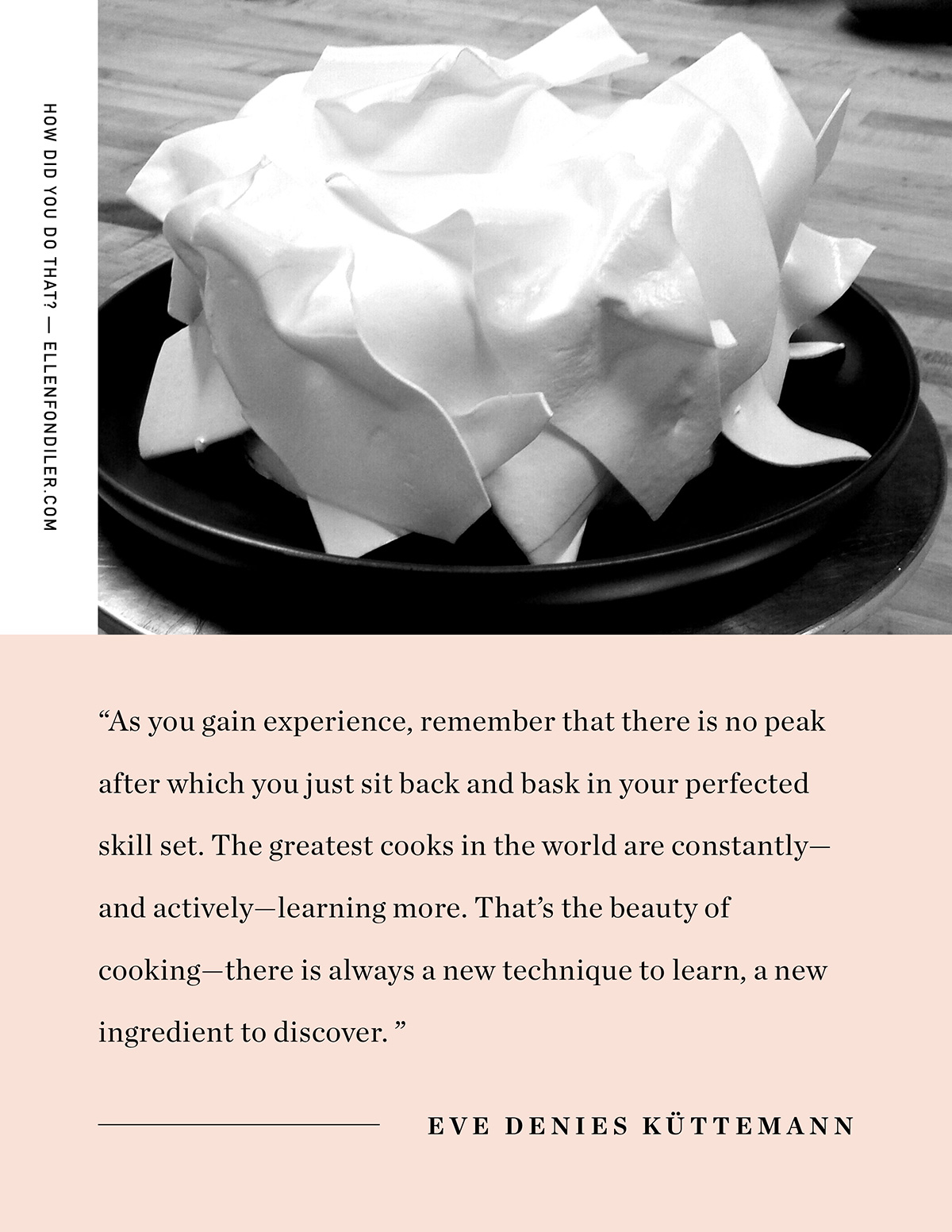
3 Things
If someone is interested in becoming a chef, what are the first 3 things they should do?
1. First, try it out!
In the industry, we call it a “stage” [pronounced stahhhj, rhymes with oz] which is essentially an unpaid internship for a day or two. Working in a kitchen is nothing like what they show on TV, and the only way to know if it’s really for you is by trying it.
2. Learn on the job.
Find the hardest kitchen you can and get a job there. You will have to start at the bottom, do really hard work, and endure demoralizing treatment. Embrace it—this is a crucial step that will serve you for the rest of your career.
Whatever you do, my advice is… don’t waste your money on culinary school. You’ll put yourself in debt with no way out. You can learn all that stuff on the job, and moreover some of my best chefs actually preferred cooks who didn’t go to culinary school. University of the Streets is the way to go.
3. Always keep learning.
As you gain experience, remember that there is no peak after which you just sit back and bask in your perfected skill set. The greatest cooks in the world are constantly—and actively—learning more. That’s the beauty of cooking—there is always a new technique to learn, a new ingredient to discover. There are hidden gems in the most unlikely places. Even, as it turns out, in centuries-old American cookbooks—right between “A Cheap and Delicious Dessert Dish” and “Fried Mush”!
ONE MORE THING…
Do you have “one more quick question” that you’d like to ask Eve? Email me and tell me what you want to know! I might choose your question for my ONE MORE THING… Podcast (Coming soon!!!)
YOUR #1 CAREER GOAL: ACHIEVED
Do you need some encouragement to help you achieve a big, daunting career goal? Would you like to have a career coach/strategist in your corner—feeding you ideas that you’d never considered before, helping you figure out who to contact, and what to say, and checking in to make sure you don’t procrastinate? If so… click here to find out how we can work together. I’d love to coach you!
![]()
Photos by The Oregonian, Rabbit Hole Photo and Sage Hen.
